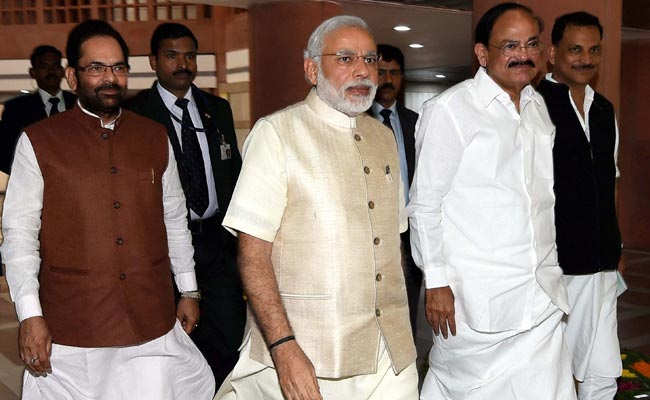New Delhi: Under tremendous pressure from the Opposition, activists and its own allies, the BJP government at the Centre on Wednesday sent out nuanced signals on the land reforms introduced by it.
While sources said Prime Minister Narendra Modi is not in favour of making major changes to one of his key reforms, his senior minister Nitin Gadkari said on Thursday afternoon, “Our PM and our government are ready to consider any suggestions. We will be talking to Opposition leaders.”
“Our doors are open to all. We are ready to discuss the consent clause and the social impact assessment,” Mr Gadkari said, referring to changes the government is seeking to make with its land ordinance that opposition parties call “anti-farmer.”
PM Modi met top ministers this morning to discuss how the government should navigate the fierce dissent to its land ordinance. The PM reportedly indicated that in the absence of any attempt towards a compromise by the Opposition, it is not worth it to call an all-party session to solicit feedback on the land reforms.
Even allies like the Shiv Sena, Akali Dal and Ram Vilas Paswan’s Lok Janshakti Party say that they find it difficult to support the BJP on this, warning that it risks being branded “anti-farmer.”
The government reportedly hopes to use the time afforded by a few busy days in Parliament on account of the Rail and Union budgets to put its strategy together. The ordinance is a temporary order and needs the approval of both houses of Parliament to come into force. It will lapse if Parliament does not ratify it this session.
Although the ruling BJP enjoys the biggest majority in 30 years in the Lok Sabha or Lower House, it is in a minority in the Rajya Sabha or Upper House and needs the support of the Opposition to pass bills there.
The Modi government had in December used an ordinance or executive order to exempt projects in defence, rural electrification, rural housing and industrial corridors from provisions of a law enacted by the previous Congress party government that mandated the consent of 80 percent of affected landowners for any deal. The ordinance also ends the need for companies to conduct a social impact study of such projects, which would involve public hearings and, industry executives fear, drag on for years.

